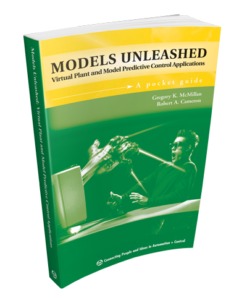AutoQuiz is edited by Joel Don, ISA's social media community manager.
This automation industry quiz question comes from the ISA Certified Automation Professional (CAP) certification program. ISA CAP certification provides a non-biased, third-party, objective assessment and confirmation of an automation professional's skills. The CAP exam is focused on direction, definition, design, development/application, deployment, documentation, and support of systems, software, and equipment used in control systems, manufacturing information systems, systems integration, and operational consulting. Click this link for more information about the CAP program.
Which of the following is an example of "adaptive control?"
a) a controller uses human-like logic criteria and makes controller output changes based on quantities such as "small" and "moderate"
b) a controller uses a quantitative process model and modifies controller tuning based on how the process responds in relation to the model prediction
c) a controller uses only Proportional and Integral actions in calculating controller output
d) a controller is comprised of layers of nodes, where the outputs from one node in a layer are multiplied by weighting factors to form the inputs to the nodes in another layer
e) none of the above
A controller uses a quantitative process model and modifies controller tuning based on how the process responds in relation to the model prediction. The essential element of "adaptive control" is the result of the control algorithm is a modification to the tuning parameters (or constants) in order to eliminate error based on changes in the process or process dynamics over time, i.e., adapting to changes in the process. "Self-tuning" controllers are based on adaptive control applied to a PID controller based on a set of tuning rules. Answer A is not correct. This type of controller would be best described as a fuzzy logic controller, which calculates controller outputs based "rules," which use the sign of the error and the sign of the change in error. Answer C is not correct. A PI controller is not adaptive since the controller logic itself does not adjust tuning parameters. A PI controller is a basic regulatory control algorithm. Answer D is not correct. This example is a simplified description of an artificial neural network, which calculates changes to controller output, not changes in tuning parameters, to eliminate error.
The correct answer is B
Reference: Models Unleashed: Virtual Plant and Model Predictive Control Applications, by McMillan, Gregory K., and Cameron, Robert A. 
About the Editor
Joel Don is the community manager for ISA and is an independent content marketing, social media and public relations consultant. Prior to his work in marketing and PR, Joel served as an editor for regional newspapers and national magazines throughout the U.S. He earned a master's degree from the Medill School at Northwestern University with a focus on science, engineering and biomedical marketing communications, and a bachelor of science degree from UC San Diego.




